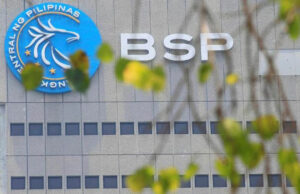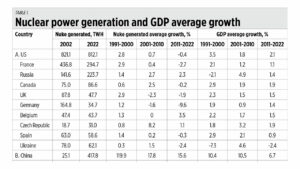Philippines improves in digital competitiveness

By Arjay L. Balinbin, Senior Reporter
THE PHILIPPINES improved two spots in a global digital competitiveness index, but still had the lowest ranking among Southeast Asian countries.
In IMD business school’s World Digital Competitiveness Ranking 2022, the Philippines ranked 56th out of 63 countries with a score of 52.81. This was an improvement from its 58th ranking last year.
The Philippines remained 13th among the 14 Asia-Pacific economies included in the IMD ranking, ahead only of Mongolia.
Among the five main Southeast Asian economies, the Philippines lagged behind Indonesia (51st), Thailand (40th), Malaysia (31st) and Singapore (4th).
Denmark was the top performer globally, with a score of 100, followed by the United States and Sweden, both with 99.81, and Singapore with 99.48.
On the other hand, Venezuela had the worst score of 27.
“This ranking describes the importance of national factors in explaining the digital transformation of companies and the adoption of digital practices by citizens,” World Competitiveness Center Director Arturo Bris said in a statement.
“Digital nations result from a combination of digital talent, digital regulation, data governance, digital attitudes, and the availability of capital,” he added.
Each economy is ranked in indicators grouped under three factors: knowledge, technology, and future readiness.
In terms of knowledge, the Philippines moved up to 62nd this year from 63rd the previous year, as it maintained its ranking for talent (55th) and training (61st) but fell one spot in scientific concentration (57th).
Knowledge refers to intangible infrastructure that enables the discovery, understanding, and learning of new technologies.
The Philippines also saw its ranking in terms of technology rise to 49th from 54th in 2021, as it improved its rank for the technological framework sub-factor to 45th from 49th previously. Its rankings for the regulatory framework and capital sub-factors were unchanged at 62nd and 40th place.
Under the future readiness factor, the Philippines slipped to 58th from 57th spot. This measures the extent to which technology is adopted by the government, businesses, and society.
However, the country improved two spots to 58th in the sub-factor of adaptive attitudes, but fell to 45th from 37th spot in terms of business agility. It remained at 57th spot for the information technology integration sub-factor.
In an e-mailed reply to questions, José Caballero, senior economist at the IMD World Competitiveness Center, told BusinessWorld that the Philippines’ improvement in the overall ranking stems from its performance in the technology factor, particularly under the technological framework sub-factor.
“Elsewhere, there are relatively strong advances in the availability of digital/technological skills, and IT and media stock market capitalization,” he noted.
Mr. Caballero said strengthening training, education and the regulatory framework can lead to further overall improvements in the Philippines’ ranking.
At the same time, the Philippines also needs to “build adaptive attitudes and businesses agility so that IT integration materializes thereby increasing the country’s future readiness,” he said.
Sought for comment, Philippine Chamber of Commerce and Industry President George T. Barcelon said the results for the Philippines show that the “economy needs to shift more to digitalization.”
“As such, there is a need for better coverage, and affordable connectivity is crucial,” he said in a phone message.
Mr. Barcelon noted the current administration’s priorities are aligned with the knowledge, technology, and future readiness factors considered in the digital competitiveness ranking.
Terry L. Ridon, a public investment analyst and convenor of think tank InfraWatch PH, said the improved ranking is a welcome development but “insignificant at best.”
“This, however, is a result of the current strides achieved by both the public and private sector to expedite tower development, including shortening permitting requirements and opening up the tower sector to other players,” he said in a phone message.
Mr. Ridon said the country needs to catch up in technological development and make gains in governance if it hopes to improve digital competitiveness.
“It is unacceptable that we are at the bottom of regional rankings compared to regional partners… As yet, we remain technology consumers instead of producers. No Silicon Valley-style hub has yet been built in any of our economic centers.”
Rizal Commercial Banking Corp. Chief Economist Michael L. Ricafort described the country’s digital competitiveness performance as “a gradual/modest improvement relative to the digital competitiveness of other ASEAN (Association of Southeast Asian Nations) countries.”
Asked what needs to be done, he said: “The rightsizing of the government… hinges on further automating government transactions, increasing efficiency and productivity, as well as reducing the transaction costs and the amount of time required for the general public to transact with the government.”
“This would have a larger marginal improvement that could further boost the country’s digital competitiveness ranking,” Mr. Ricafort added.
He also noted that the government needs to invest or spend more on IT systems or infrastructure to automate and digitize its internal processes, as well as transactions with the general public.




